The Darkest Places
The Darkest Places
Unsolved Mysteries, True Crimes, and Harrowing Disasters in the Wild
The Editors of Outside Magazine

guilford, connecticut

An imprint of The Rowman & Littlefield Publishing Group, Inc.
4501 Forbes Blvd., Ste. 200
Lanham, MD 20706
www.rowman.com
Falcon and FalconGuides are registered trademarks and Make Adventure Your Story is a trademark of The Rowman & Littlefield Publishing Group, Inc.
Distributed by NATIONAL BOOK NETWORK
Copyright 2019 by Outside Magazine
All rights reserved. No part of this book may be reproduced in any form or by any electronic or mechanical means, including information storage and retrieval systems, without written permission from the publisher, except by a reviewer who may quote passages in a review.
British Library Cataloguing-in-Publication Information available
Library of Congress Cataloging-in-Publication Data available
ISBN 978-1-4930-3988-3 (hardcover)
ISBN 978-1-4930-3989-0 (e-book)
 The paper used in this publication meets the minimum requirements of American National Standard for Information SciencesPermanence of Paper for Printed Library Materials, ANSI/NISO Z39.48-1992.
The paper used in this publication meets the minimum requirements of American National Standard for Information SciencesPermanence of Paper for Printed Library Materials, ANSI/NISO Z39.48-1992.
The authors and Rowman & Littlefield assume no liability for accidents happening to, or injuries sustained by, readers who engage in the activities described in this book.
Printed in the United States of America
Introduction
Chris Keyes
When youre dealing with a tale of intrigue and suspicion in which nothing wants to be what it seems, the best place to start is at the beginning, before everything about the Mystery of the Feet got complicated.
S o begins Christopher Solomons Foot. Loose., a true-crime masterpiece and one of the strangest tales weve ever published in Outside . In 2010, the magazines longtime contributing editor proposed investigating a frightening case that was unfolding a few hours north of his home in Seattle. Seven detached human feet had washed ashore over the span of fifteen months in the coastal waters surrounding Vancouver, British Columbia. Authorities had no idea whether these macabre discoveries were evidence of an active serial killer or just a strange coincidence. We were just as baffledthough we were clear about one thing. Missing feet? Seven of them? We needed to assign this immediately.
Solomons eventual story, which begins on page 164, is a wild ride. Its also a prime example of the kind of cant-look-away events and peculiar crimes Outside has spent forty-one years chronicling. Decisions on whom or what to cover in our magazine are generally informed by our original mission statement: to inspire active participation in the world outside. So Ill acknowledge up front that this sunny, positive outlook appears to be in direct conflict with an anthology comprised of grisly crimes, horrifying mysteries, and terrifying, unexplained phenomena. On the surface, at least, the only thing the subjects of these storiesmurder, violence, disappearances, and general mayhemshould inspire is an extreme compulsion to stay inside. Go deeper, however, and youll discover that these pieces reveal hidden truths about the natural world and ponder the yin-and-yang realities of exploration in the wild. We champion the idea that time spent in nature is one of the most effective antidotes for the stress and anxiety that afflict our plugged-in, tech-inundated era. But we also recognize that terrible things sometimes happen in the same places that promise refuge, and to ignore that factto not examine it closely or wrestle with its implicationsis to ignore the essence of nature itself. Besides, who doesnt love a scary story told around the campfire?
Were not cable news, however. We dont aim to exploit the tragic suffering of others for entertainment value and increased circulation. To that end, there are some basic themes and ingredients we look for before we tell a writer to spend months following leads into creepy and dangerous territory. Scrutinize the stories weve selected here, a representative sample of some of the scariest pieces weve ever published, and common traits emerge that point to why we took the time to tell them. Take, for example, Foot. Loose., which is cataloged under the heading of Strange Phenomenastories that gamely attempt to explain the unexplainable. When we gave Solomon the green light, we knew it was unlikely that hed solve the mystery. Didnt matter. It was the setting, the noir backdrop of the Pacific Northwest, that gave the story such obvious potential. Its very possible that a macabre killer isnt on the loose, of course, Solomon wrote in his original pitch. But the certainty of a killer is beside the point, really. This is a mood piecea heavily reported mood pieceabout a region, its dark history, and its unique relationship with death. To which we replied: Go for it.
Similarly, in 2010, when Tim Zimmermann set out to report on the death of a SeaWorld trainer during a performance with a captive orca, the goal wasnt to simply recount the horrific event itself. The grim details could already be found in a pile of national news stories covering the tragedy. Instead, Zimmermann wanted to explore a larger question: Could an orca commit premeditated murder? The question is too preposterous to really answer, but we knew that grappling with it would lead Zimmermann to pull on some fascinating threads, including a sober examination of the questionable ethics involved with training and breeding wild sea creatures in captivity. His eventual story, The Killer in the Pool, was one of the most widely read pieces in Outside s history. It also led to the acclaimed documentary Blackfish , and important changes in the way SeaWorld and other marine parks treat their animals.
Sometimes stories that fall into the Strange Phenomena category offer no mystery at all, but an overlooked angle or surprising wrinkle serves as the narrative engine. In 2011, Dean King pitched us on the tale of an eight-year-old boy named Robert Wood Jr., who went missing in a forest in northern Virginia. By the time King sent his proposal, Wood had already been found, and it was a different element in the story that made it worthy of pursuing: Wood was autistic. Unlike the vast majority of people who get lost, the boy was likely trying to evade being found, because of a hardwired fear of contact with strangers. As King explained, that meant the frantic search-and-rescue teams charged with finding Wood had to scrap their standard playbook and completely rethink their approach. Their tactics make Catch Me If You Can a fascinating look into the science of search operations and human behavior.
The common threads youll find linking the stories in the books Wild Crimes section are quite different. These pieces all involve some combination of heinous acts and dastardly behavior, ingredients that have been driving narratives for eons. But its the writers efforts to figure out what makes the perpetrators tickwhat separates these criminal masterminds from any of usthat often elevates them beyond mere disaster porn.
In 2007, that kind of quest landed writer McKenzie Funk in prison. Well, as a visitor. For months, Funk corresponded by phone and through letters with convicted ecoterrorist Chelsea Gerlach, a former member of the Earth Liberation Front who participated in the groups 1998 arson at Vail Resort in Colorado. Few Outside readers would ever condone her actions. The fires not only caused $12 million in damage, but they could have killed Vail employees. Still, many of our readers are environmentalists, and Funk was curious to understand how a young woman interested in protecting wild places became radicalized to the point that she was willing to put lives at risk to achieve her goals. What does that evolution look like? Firestarter succeeds in answering that question, in large part because Funk chose to tell it in Gerlachs own words.
Next page
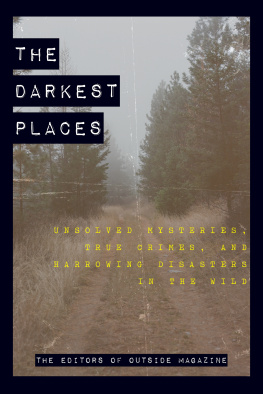

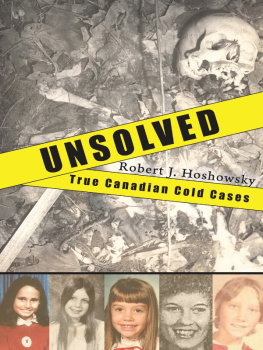
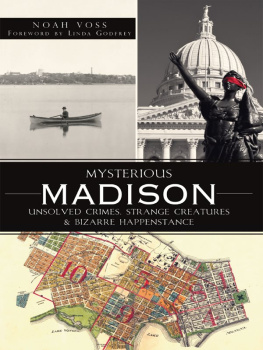
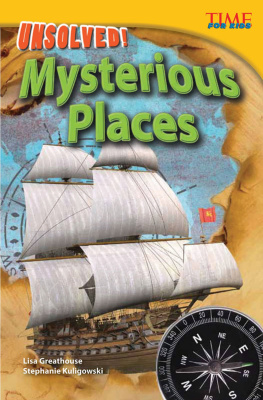


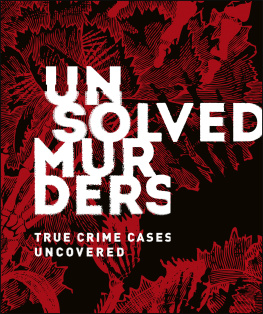





 The paper used in this publication meets the minimum requirements of American National Standard for Information SciencesPermanence of Paper for Printed Library Materials, ANSI/NISO Z39.48-1992.
The paper used in this publication meets the minimum requirements of American National Standard for Information SciencesPermanence of Paper for Printed Library Materials, ANSI/NISO Z39.48-1992.